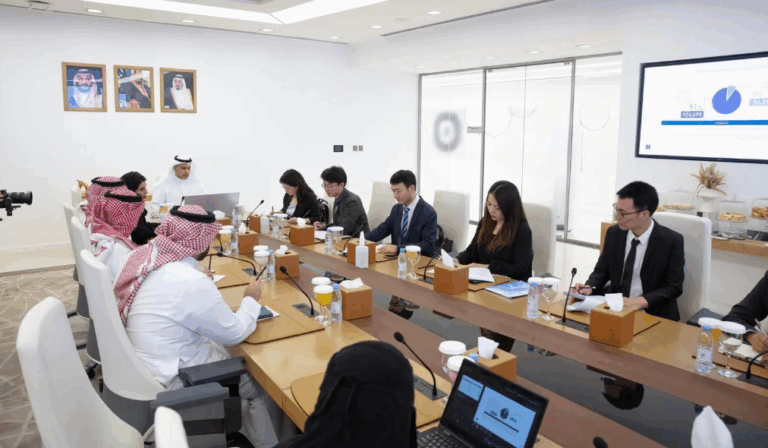**Titular:**
*Audi 2022: Récord en Ganancias y Electrificación*
**Intro:**
El Grupo Audi cerró 2022 con resultados históricos: ingresos récord de €61.800 millones y un beneficio operativo de €7.600 millones (+40%), impulsados por su estrategia eléctrica y el desempeño de Bentley, Lamborghini y Ducati. Los vehículos 100% eléctricos aumentaron un 44%, consolidando su transición hacia la movilidad premium sostenible, con la plataforma PPE y el Q6 e-tron como próximos hitos.
**Factbox (50 palabras):**
– **Ingresos 2022:** €61.800M (+16,4%).
– **Beneficio operativo:** €7.600M (+40%).
– **Margen operativo:** 12,2% (vs. 10,4% en 2021).
– **Vehículos eléctricos:** 118.196 entregas (+44%).
– **Inversión 2023-2027:** €28.000M en electrificación y digitalización.
– **Flujo de caja neto:** €4.800M (2° mejor histórico).
**Audi Grupo 2022: Récords Financieros y Aceleración hacia la Movilidad Eléctrica**
**Introducción: Un Año Histórico**
El Grupo Audi cerró el 2022 con resultados sin precedentes, consolidando su transición hacia líder en movilidad premium conectada y eléctrica. En un contexto global desafiante, la compañía logró récords en ingresos, ganancias operativas y avances significativos en su estrategia de electrificación.
—
**1. Resultados Financieros Récord**
– **Ingresos**: Aumentaron un 16,4%, alcanzando los **61.800 millones de euros** (frente a 53.068 millones en 2021).
– **Beneficio Operativo**: Subió un 40%, llegando a **7.600 millones de euros**, con un margen operativo del **12,2%** (vs. 10,4% en 2021).
– **Flujo de Caja Neto**: **4.800 millones de euros**, el segundo más alto en la historia de la empresa.
**Factores Clave**:
– Gestión eficiente de crisis globales (logística y cadena de suministro).
– Posición de precios sólida y contribución récord de Bentley, Lamborghini y Ducati.
—
**2. Electrificación: Motor de Crecimiento**
– **Vehículos Eléctricos (BEV)**: Entregas aumentaron un **44%** (118.196 unidades), representando el **7,2%** del total de entregas.
– **Nuevas Plataformas**: En 2023, Audi lanzará el **Q6 e-tron**, primer modelo basado en la **Plataforma Premium Eléctrica (PPE)**, desarrollada con Porsche.
– **Inversiones Futuras**: **28.000 millones de euros** (2023-2027) destinados a electrificación y digitalización, dos tercios del presupuesto total.
**Innovación Local**:
– Nueva fábrica de baterías en Ingolstadt (Alemania), asegurando “know-how” crítico en producción eléctrica.
—
**3. Sostenibilidad: Eje Estratégico**
– **Taxonomía UE**: **13,5%** de los ingresos alineados con criterios sostenibles (vs. 12,8% en 2021), incluyendo ventas de BEV.
– **ESG**: En 2023, Audi obtendrá una calificación ESG independiente para transparentar su compromiso ambiental y social.
– **Economía Circular**:
– Proyecto **MaterialLoop**: Reciclaje de 100 vehículos al final de su vida útil para reutilizar materiales en nuevos modelos.
– Incremento progresivo de materiales reciclados en su flota.
—
**4. Bentley, Lamborghini y Ducati: Triunfadores Premium**
– **Bentley**:
– **15.174 unidades** entregadas (+3,5%), con un margen operativo récord del **20,9%**.
– **Lamborghini**:
– **9.233 unidades** vendidas (+21,9%), margen operativo del **25,9%**.
– **Ducati**:
– **61.562 motocicletas** entregadas (récord histórico), margen operativo del **10%**.
—
**5. Perspectivas 2023: Enfoque en Electrificación**
– **Entregas**: Entre **1,8 y 1,9 millones** de vehículos.
– **Ingresos**: Proyectados entre **69.000 y 72.000 millones de euros** (nuevo récord).
– **Margen Operativo Esperado**: 9-11%, respaldado por precios altos y demanda de BEV.
**Novedades Clave**:
– Lanzamiento del **Q6 e-tron** en la segunda mitad de 2023.
– Expansión en China con la planta PPE en Changchun para vehículos eléctricos locales.
—
**Conclusión: Audi Acelera hacia 2030**
Con la estrategia **Vorsprung 2030**, Audi combina rentabilidad y sostenibilidad. Los récords financieros de 2022, el impulso eléctrico y el desempeño de sus marcas premium refuerzan su camino hacia el liderazgo en movilidad premium conectada. En palabras de Markus Duesmann, CEO:
> *”Nuestra atención a la sostenibilidad guiará cada acción, asegurando un futuro innovador y responsable”.*
**Audi no solo avanza hacia la electrificación, sino que redefine el futuro del automóvil premium.**
**15 FAQs About Audi Group’s 2022 Fiscal Year and Future Plans**
1. **What were Audi Group’s operating profit and revenue in 2022?**
Audi achieved a record €7.6 billion operating profit (up 40%) and €61.8 billion revenue (up 16.4%), driven by strong pricing, crisis management, and premium brand contributions.
2. **How did Audi’s electric vehicle (EV) deliveries perform in 2022?**
Fully electric deliveries rose 44% to 118,196 vehicles, increasing EV share from 4.8% to 7.2% of total sales, driven by models like the Q4 e-tron and e-tron GT.
3. **What is Audi’s Premium Platform Electric (PPE)?**
The PPE, co-developed with Porsche, is Audi’s modular EV platform debuting with the Q6 e-tron in late 2023, marking the start of its largest-ever product campaign.
4. **What is the focus of Audi’s Vorsprung 2030 strategy?**
The strategy prioritizes electrification, digitalization, and sustainability, aiming to position Audi as a leader in connected, premium electric mobility while embedding ESG principles.
5. **How did Bentley, Lamborghini, and Ducati contribute to Audi’s 2022 success?**
Bentley hit record revenue (€3.38B) and a 20.9% margin; Lamborghini achieved €2.37B revenue; Ducati sold 61,562 bikes, its highest-ever deliveries.
6. **What sustainability initiatives did Audi highlight in 2022?**
Audi emphasized circular economy practices, recycled materials, the MaterialLoop project, and EU taxonomy-aligned revenue (13.5% of total), with plans for an ESG rating in 2023.
7. **What is Audi’s MaterialLoop project?**
A circular economy initiative recycling materials from 100 end-of-life cars into new production, involving 15 partners to reduce environmental impact and secure secondary resources.
8. **How did supply chain challenges affect Audi’s 2022 deliveries?**
Deliveries reached 1.61 million vehicles (nearly matching 2021), despite logistics disruptions in H1, aided by strong H2 performance.
9. **What percentage of Audi’s revenue aligns with EU taxonomy standards?**
13.5% (€8.3 billion) of Audi’s 2022 revenue met EU taxonomy criteria, up from 12.8% in 2021, driven by surging EV sales.
10. **How did Audi revise employee profit-sharing in 2022?**
Audi updated its plan to include profit-sharing from the first euro earned, raising payouts to €8,510 per skilled German worker (vs. €5,670 in 2021).
11. **What were Audi’s financial results in China for 2022?**
Audi’s China operations contributed €1.15 billion to its €1.52 billion financial result, supported by localized strategies and future PPE production in Changchun.
12. **What is Audi’s 2023 financial and delivery outlook?**
Audi forecasts 1.8–1.9 million deliveries, €69–72 billion revenue, a 9–11% operating margin, and €4.5–5.5 billion net cash flow, pending economic conditions.
13. **Why did Audi’s 2022 net cash flow drop compared to 2021?**
Net cash flow reached €4.8 billion (second-highest ever), impacted by higher inventories, taxes, investments in PPE, and supply chain costs.
14. **What investments is Audi making in electrification by 2027?**
Audi plans to invest €28 billion (2023–2027), with two-thirds allocated to electrification and digitalization, including PPE expansion and battery facilities.
15. **Why is the Q6 e-tron significant for Audi’s EV strategy?**
As Audi’s first PPE-based model, the Q6 e-tron (built in Ingolstadt with a dedicated battery plant) strengthens its EV lineup and German manufacturing expertise.
**CTA (Llamado a la Acción):**
¿Listo para ser parte de la movilidad del futuro? Descubre la innovación eléctrica de Audi y conoce más sobre el revolucionario **Q6 e-tron**, el primer modelo basado en la plataforma PPE. Visita nuestro sitio web, explora nuestra gama de vehículos 100% eléctricos y únete a nosotros en el camino hacia un futuro sostenible y conectado. ¡El cambio comienza ahora!
**Conclusión:**
El año fiscal 2022 marcó un hito histórico para el Grupo Audi, consolidando su liderazgo en movilidad premium eléctrica y sostenible. Con récords en ingresos (€61.8 mil millones), rentabilidad (margen operativo del 12.2%) y un crecimiento del 44% en entregas de vehículos eléctricos, Audi demuestra que su estrategia **Vorsprung 2030** está dando frutos incluso en tiempos de crisis globales. El impulso de marcas como Bentley, Lamborghini y Ducati, junto con inversiones clave en digitalización y economía circular, refuerzan su compromiso con la excelencia y la sostenibilidad. En 2023, con el lanzamiento del Q6 e-tron y una inversión de €28 mil millones en electrificación, Audi no solo mira hacia adelante: está acelerando el futuro.
**Agradecimiento:**
Agradecemos profundamente a nuestros clientes, empleados, socios y accionistas por su confianza y colaboración en este año extraordinario. Su compromiso ha sido fundamental para alcanzar estos logros. En Audi, seguiremos trabajando con pasión y responsabilidad para liderar la transformación hacia una movilidad conectada, eléctrica y sostenible. ¡Juntos, estamos construyendo un mañana mejor!
—
*¿Te interesa conocer más sobre nuestros proyectos de sostenibilidad o reservar un test drive de nuestros modelos eléctricos? ¡Contáctanos hoy mismo!* 🔌🚗



